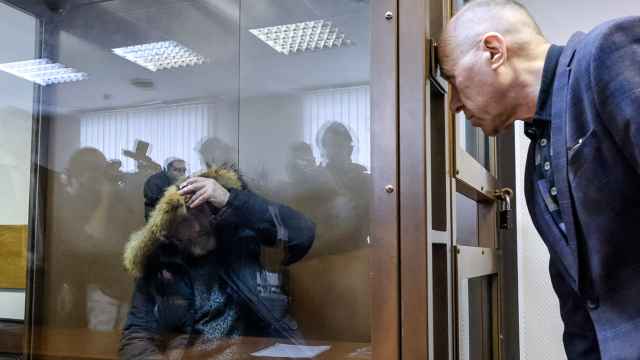The corruption market in Russia is estimated at $300 billion a year, with most of this money circulating in the public finance, state property and natural resource industries, according to estimates released Monday by the National Anti-Corruption Committee, an opposition-minded think tank.
But experts worried that the majority of those cases are not investigated, since law enforcement officials are more willing to go after small bribes given to teachers or traffic police.
"Corruption is a business, and for some of the bureaucracy it is a part of their state service," Kirill Kabanov, head of the National-Anti Corruption Committee, said Monday during a press conference.
In an indication that some lawmakers and the opposition might join forces in the fight against corruption, Kabanov was supported by Alexander Savenkov, a deputy head of the Federation Council's legal committee.
"There is a general dissatisfaction regarding the [insufficient] exposure of corruption facts," said Savenkov, who was a first deputy justice minister before becoming a senator.
Savenkov said the number of exposed corruption cases is decreasing. He added that the average level of a bribe in Russia accounts to 300,000 rubles ($10,000), according to Interior Ministry statistics.
The number sharply contrasts with the statistics of the Supreme Court, which has said that in 60 percent of court cases bribes ranged from 1,000 rubles ($30) to 10,000 rubles ($300) in 2011-12.
Prosecutor General Yury Chaika said in 2008 that most bribes in Russia were received by teachers, doctors and police officers.
Savenkov said that corrupt officials usually have a group of supporters and lawyers who help him escape justice.
Kabanov said that Russian corruption differs sharply from that in the West.
"Corruption exists because of the number of additional services that the bureaucracy imposes on society," Kabanov said.
Some experts also believe that the absence of lobbying legislation is among the key issues in anti-corruption efforts.
"It will be a useful step toward introducing the rule of law," said Viktor Zubarev, a State Duma Deputy representing United Russia.
Several earlier attempts to pass lobbying legislation failed. Zubarev, a deputy head of the Delovaya Rossia business lobby, said he hoped a lobbying bill would be passed by the current Duma, whose term expires in 2016.
In 2009, President Vladimir Putin said lobbying should be prevented during budget votes.
Contact the author at [email protected]
A Message from The Moscow Times:
Dear readers,
We are facing unprecedented challenges. Russia's Prosecutor General's Office has designated The Moscow Times as an "undesirable" organization, criminalizing our work and putting our staff at risk of prosecution. This follows our earlier unjust labeling as a "foreign agent."
These actions are direct attempts to silence independent journalism in Russia. The authorities claim our work "discredits the decisions of the Russian leadership." We see things differently: we strive to provide accurate, unbiased reporting on Russia.
We, the journalists of The Moscow Times, refuse to be silenced. But to continue our work, we need your help.
Your support, no matter how small, makes a world of difference. If you can, please support us monthly starting from just $2. It's quick to set up, and every contribution makes a significant impact.
By supporting The Moscow Times, you're defending open, independent journalism in the face of repression. Thank you for standing with us.
Remind me later.





